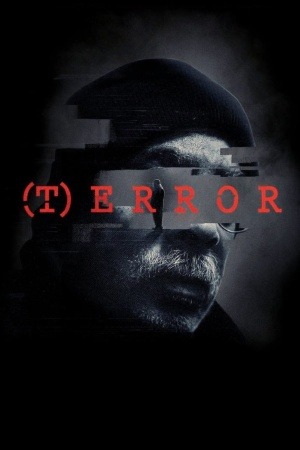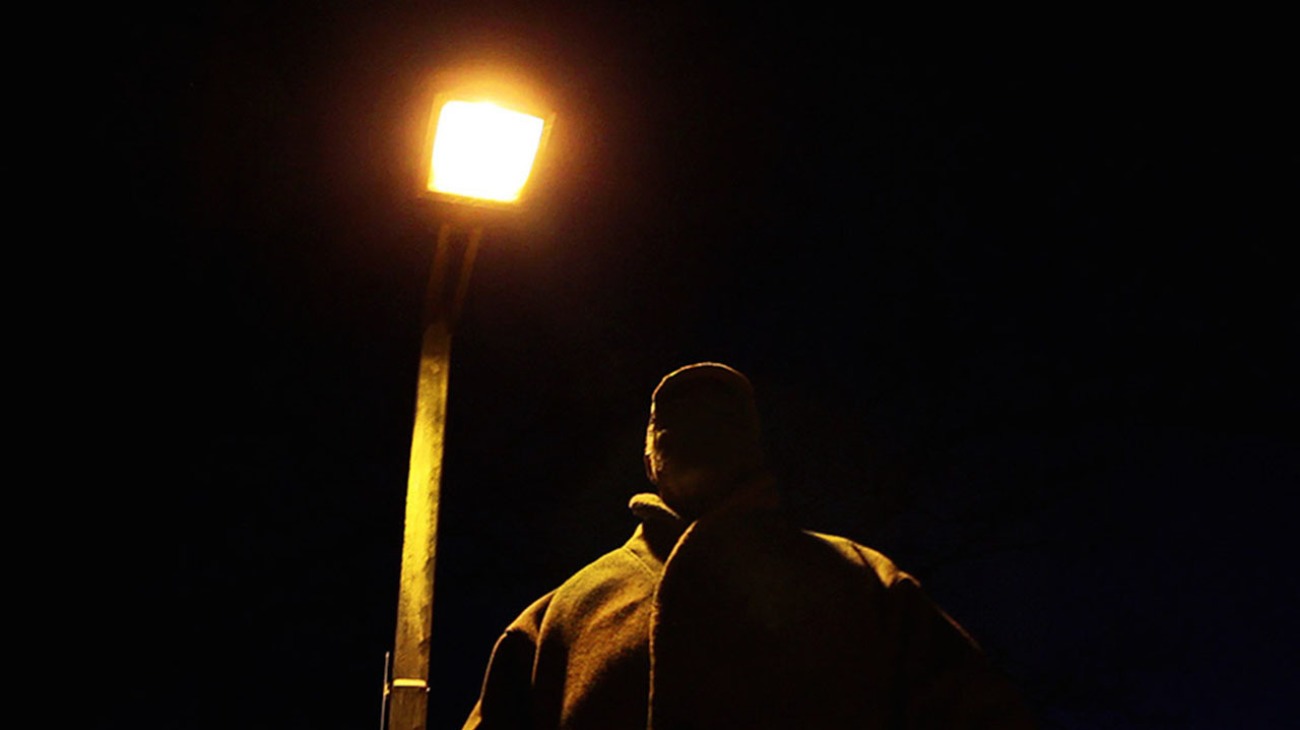
A review in brief
Something feels distinctly not right about having one's response to a documentary study about the grotesque abuses made by the FBI in pursuing potential terror suspects be that it feels like a great '70s paranoia thriller, but I think that (T)error understands that there's something feistier going on than just cataloging the moral depravity of the War on Terror in its second decade. The film makes for a natural double-feature with last year's Citizenfour: both of them are stories about how the documentarians themselves become part of the story they're telling, and how scary and exhilarating that can be when it involves playing mind games with the U.S. government. (T)error is the better film, though; it lacks Citizenfour's regard for its own self-worth, instead viewing the spiral of madness that we'd call "farcical" if it was at all funny with an objective detachment that finds directors Lyric R. Cabral & David Felix Sutcliffe all but asking out loud, "what the fuck is wrong with us?"
The backstory: Saeed Torres was a friend of Cabral's, who one day told her an unusual secret. Seems that he's spent much of his life as an FBI mole, using his connections to the Black Muslim communities in America to hunt down targets the FBI selects and try to entrap them. Why he would tell her this is anybody's guess, as is why he'd agree to let her and Sutcliffe make a movie about his latest attempt to track down possible terrorist Khalifah Al-Akili, who has been making some pro-Taliban posts on the internet. Whatever cat-and-mouse tension the film might conceivably generate evaporates when we meet Al-Akili, a pudgy white American nerd who can't understand why this grumpy old black man keeps pestering him about trying to overthrow the government.
It couldn't be clearer that everyone involved understands this to be entirely bullshit: Torres is an extravagantly awkward spy, and Al-Akili is more pathetic than threatening and kens almost immediately that Torres, using the name "Shareef", is a narc. And yet they grind along, as do Cabral and Sutcliffe, who make some decisions in the film's second half that are half brilliant journalism, half reckless irresponsibility, and which add to the general sense that we're watching a dress rehearsal for a spy thriller going terribly wrong.
It all makes the case more elegantly than words ever could: the way the FBI runs counter-terrorism operations is criminally absurd and unethical. The film doesn't editorialise on this point, but it doesn't have to: in showing Al-Akili's utterly boring little life, or listening to Torres wearily recounting the series of mistakes that led him to this point, it captures a sense of smallness brilliantly. These are regular if eccentric people, and they deserve much better than being forced into the center of this cartoonish nonsense. The film is both angry and resigned about this point, but the argument lingers less than the humanity of the subjects, and the unfairness that they were trapped in this brilliantly oddball document.
The backstory: Saeed Torres was a friend of Cabral's, who one day told her an unusual secret. Seems that he's spent much of his life as an FBI mole, using his connections to the Black Muslim communities in America to hunt down targets the FBI selects and try to entrap them. Why he would tell her this is anybody's guess, as is why he'd agree to let her and Sutcliffe make a movie about his latest attempt to track down possible terrorist Khalifah Al-Akili, who has been making some pro-Taliban posts on the internet. Whatever cat-and-mouse tension the film might conceivably generate evaporates when we meet Al-Akili, a pudgy white American nerd who can't understand why this grumpy old black man keeps pestering him about trying to overthrow the government.
It couldn't be clearer that everyone involved understands this to be entirely bullshit: Torres is an extravagantly awkward spy, and Al-Akili is more pathetic than threatening and kens almost immediately that Torres, using the name "Shareef", is a narc. And yet they grind along, as do Cabral and Sutcliffe, who make some decisions in the film's second half that are half brilliant journalism, half reckless irresponsibility, and which add to the general sense that we're watching a dress rehearsal for a spy thriller going terribly wrong.
It all makes the case more elegantly than words ever could: the way the FBI runs counter-terrorism operations is criminally absurd and unethical. The film doesn't editorialise on this point, but it doesn't have to: in showing Al-Akili's utterly boring little life, or listening to Torres wearily recounting the series of mistakes that led him to this point, it captures a sense of smallness brilliantly. These are regular if eccentric people, and they deserve much better than being forced into the center of this cartoonish nonsense. The film is both angry and resigned about this point, but the argument lingers less than the humanity of the subjects, and the unfairness that they were trapped in this brilliantly oddball document.
Categories: documentaries, political movies, thrillers






